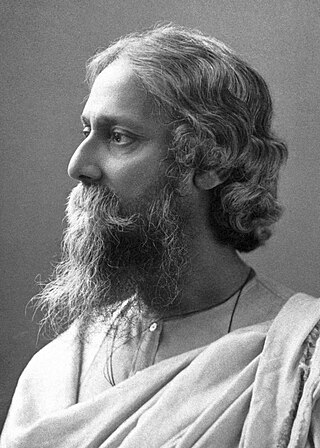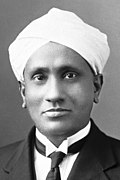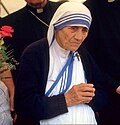Top Qs
Timeline
Chat
Perspective
List of Indian Nobel laureates
From Wikipedia, the free encyclopedia
Remove ads
The Nobel Prize is a set of annual international awards bestowed on "those who conferred the greatest benefit on humankind" in the fields of Physics, Chemistry, Physiology or Medicine, Literature, Peace and Economic Sciences,[A][2] instituted by Alfred Nobel's last will, which specified that a part of his fortune be used to create the prizes. Each laureate (recipient) receives a gold medal, a diploma and a sum of money, which is decided annually by the Nobel Foundation.[3] The Royal Swedish Academy of Sciences awards the Nobel Prize in Physics, the Nobel Prize in Chemistry and the Sveriges Riksbank Prize in Economic Sciences in Memory of Alfred Nobel; the Nobel Assembly at the Karolinska Institute awards the Nobel Prize in Physiology or Medicine; the Swedish Academy awards the Nobel Prize in Literature; and the Norwegian Nobel Committee awards the Nobel Peace Prize. They are widely recognised as one of the most prestigious honours awarded in the aforementioned fields.[4]

First instituted in 1901, the Nobel Prize has been awarded to a total of 989 individuals (930 men and 59 women) and 30 organisations as of 2022[update].[5] Among the recipients, 12 are Indians of which 5 are Indian citizens and 7 are of Indian ancestry or residency. Rabindranath Tagore was the first Indian citizen to be awarded and also the first non-European and the first Asian to be awarded in 1913. Mother Teresa is the only woman among the list of recipients.[6] Sri Aurobindo, the Indian poet, philosopher, nationalist and developer of Integral yoga, was nominated unsuccessfully for the Nobel Prize in Literature in 1943 and for the Nobel Peace Prize in 1950.[7][8]
On 1 December 1999, the Norwegian Nobel Committee confirmed that Mahatma Gandhi was nominated unsuccessfully for the Peace Prize five times (from 1937 to 1939, in 1947 and a few days before he was assassinated in January 1948).[9] In 2006, Geir Lundestad, the Secretary of Norwegian Nobel Committee, cited it as "the greatest omission in our 106-year history".[10][11][12]
Remove ads
Laureates
Summarize
Perspective
The following are the Nobel laureates who were residing in India at the time they were awarded the Nobel Prize.[13][B]
Overseas citizens of Indian origin
The following are not Indians, but rather Nobel laureates born in British India or laureates who are of Indian origin but subsequently non-citizens of India; however, they are still often included in lists of Indian Nobel laureates.
Other
The following are Nobel laureates with Indian linkages – foreigners who were born in India, those who are of Indian ancestry and those who were residents in India when they became recipients of the Nobel Prize.
Remove ads
See also
Notes
- The Sveriges Riksbank Prize in Economic Sciences is an additional prize that was established in 1968 by the Bank of Sweden and was first awarded in 1969. Although not technically a Nobel Prize, it is identified with the award and the winners are announced with the Nobel Prize recipients, and the Prize in Economic Sciences is presented at the Nobel Prize Award Ceremony.[2]
- Per Indian nationality law, Article 9 of the Indian Constitution says that a person who voluntarily acquires citizenship of any other country is no longer an Indian citizen. Also, according to The Passports Act, a person has to surrender his Indian passport; it is a punishable offence under the act if he fails to surrender the passport. Hence, citizenship exclusively includes jus sanguinis (citizenship by right of blood).[14]
- Born in Skopje, Ottoman Empire
- shared with Malala Yousafzai of Pakistan
- Awarded along with Robert W. Holley and Marshall W. Nirenberg
References
Wikiwand - on
Seamless Wikipedia browsing. On steroids.
Remove ads













